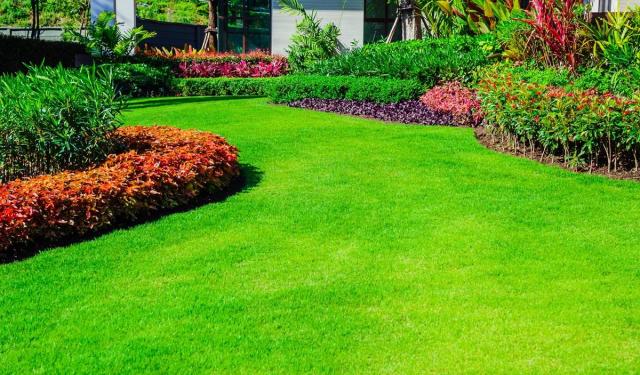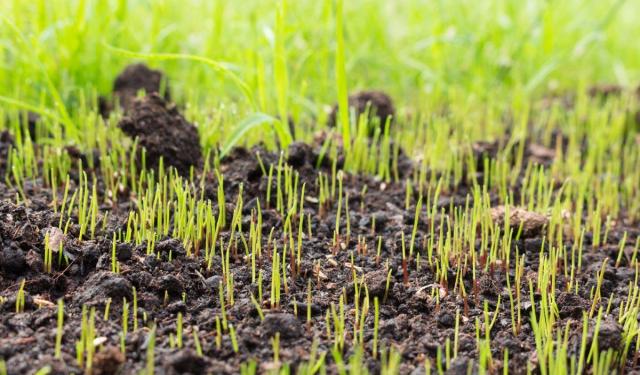Lawns play an important visual and functional role in the landscape especially when partnered with edible and ornamental gardens, trees, shrubs and hardscape. As the “carpet” of our landscapes, lawn grass serves as a play area and unifying element as well as allowing access to different locations within the yard. Lawns are sometimes also blamed for being high maintenance, requiring regular application of chemicals and fertilizers. At Nature’s Finest Seed, we strongly endorse the most responsible, environmentally friendly lawn and garden practices possible. Fortunately homeowners are becoming more aware of the potential harm these chemicals have on human and environmental health, and their desire to find natural alternatives is growing. One interesting development in natural lawn care methods is the use of corn gluten meal as a natural pre-emergent herbicide.
Pre-Emergent Herbicides
Traditional synthetic pre-emergent herbicides are chemicals applied to the lawn before weeds germinate. They help prevent weeds such as crabgrass from ever developing and “emerging” from the soil surface. Pre-emergent herbicides don’t harm existing plants and grasses, but they can be very tricky to work with. I usually don’t recommend the average homeowner apply a synthetic pre-emergent for a few reasons. First, the timing of the application has to be just right. Apply one too early and it will dissipate into the soil before the weed seeds germinate. One the other hand, apply one too late and the weeds will already have reached the soil surface. Also, pre-emergent herbicides will prevent you from reseeding or overseeding your lawn at the same time since it will kill every germinating seed. Synthetic pre-emergent herbicides are an expensive risk, and like most herbicides, contain toxic substances that can end up in undesired places when carelessly applied.
Natural Corn Gluten Meal

How to Apply Corn Gluten Meal
When applying corn gluten meal to a lawn, make sure you’re applying the real thing and not a corn gluten meal substitute. Corn gluten feed and distillers grains will not work. Corn gluten meal can be found in both powder and pelletized form. Dr. Christians recommends 20 lbs. of product per 1000 sq. feet of grass. Water it lightly after application to activate it. It will remain effective in the soil for five to six weeks. You should also apply it a second time around mid-August. Continual applications each year will increase its effectiveness.
Also a Fertilizer






